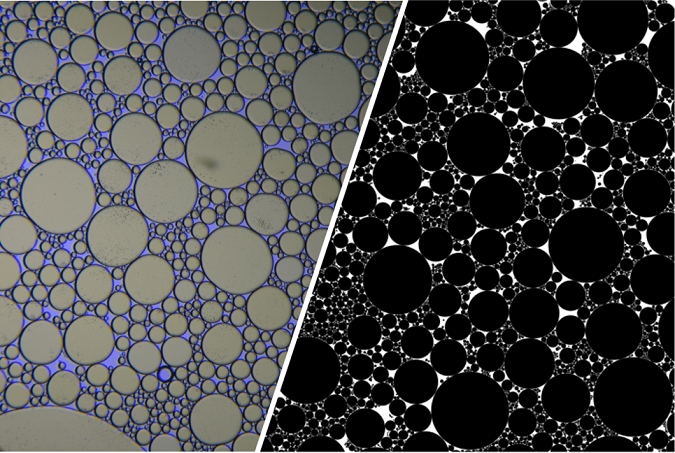DATE2023.02.14 #Press Releases
Densely packed particles of extremely variable size
Disclaimer: machine translated by DeepL which may contain errors.
--Discovery of a universal structure that is independent of variation.
Graduate School of Arts and Sciences, The University of Tokyo
Graduate School of Science, The University of Tokyo
Summary of presentation
Randomly packed structures of extremely disparate particles are widely found in nature, ranging from visible grains of rock and sediment to invisible molecules in cells. Research has been conducted to elucidate the properties of these structures, but the effects of extremely large variations on dense structures, such as those found in natural systems, have not been well understood.
Daisuke Shimamoto, graduate student, and Miho Yanagisawa, Associate Professor (concurrently at the Department of Physics, Graduate School of Arts and Sciences, The University of Tokyo), have studied the structure of a random pack of circular particles with a "power distribution" as an example of extremely large particle size variation, using experimental numerical calculations. The results revealed the unique properties of the scattering. They found that the distribution of the number of points where each particle is in contact with other particles does not depend on the size distribution (variation) of the particles, and they also discovered the conditions for variation to create a more dense structure.
This discovery is expected to lead to the discovery of structures and properties common to systems that lie behind variation, by considering sediment and intracellular molecules found in nature as a group of particles with extremely disparate sizes.
The findings were published online in Physical Review Research on February 10, 2023 (EST).

Figure: Microscopic image taken from above of circular particles of varying sizes packed tightly together in a plane.
For more information, please visit the website of the Graduate School of Arts and Sciences, The University of Tokyo.


